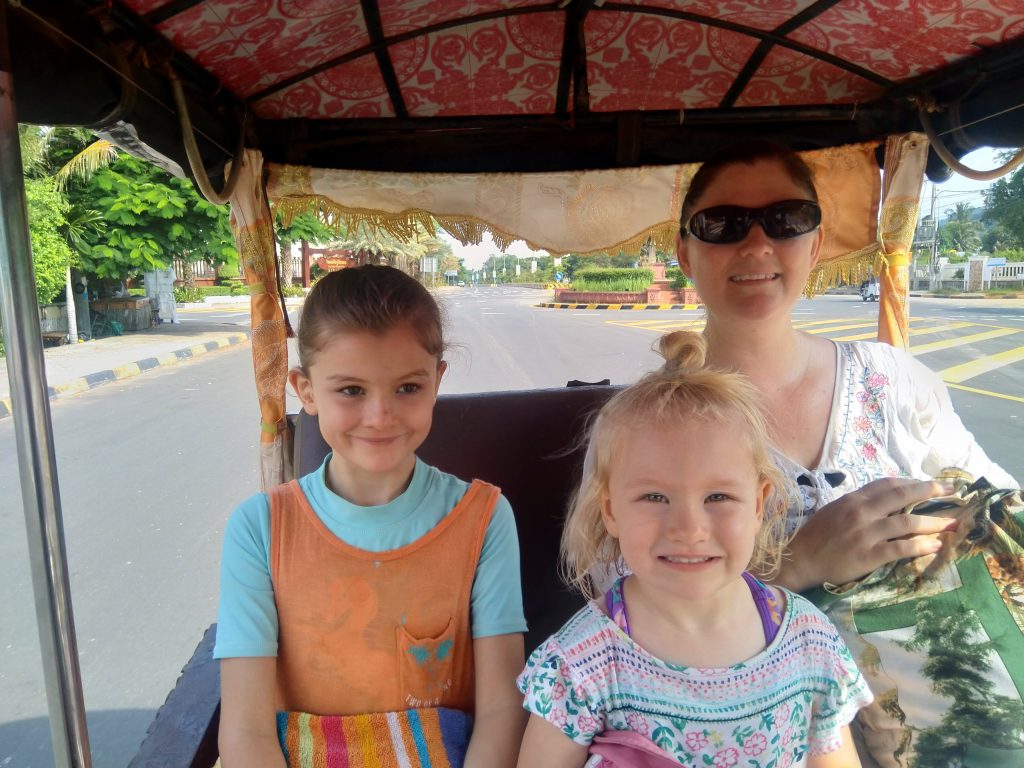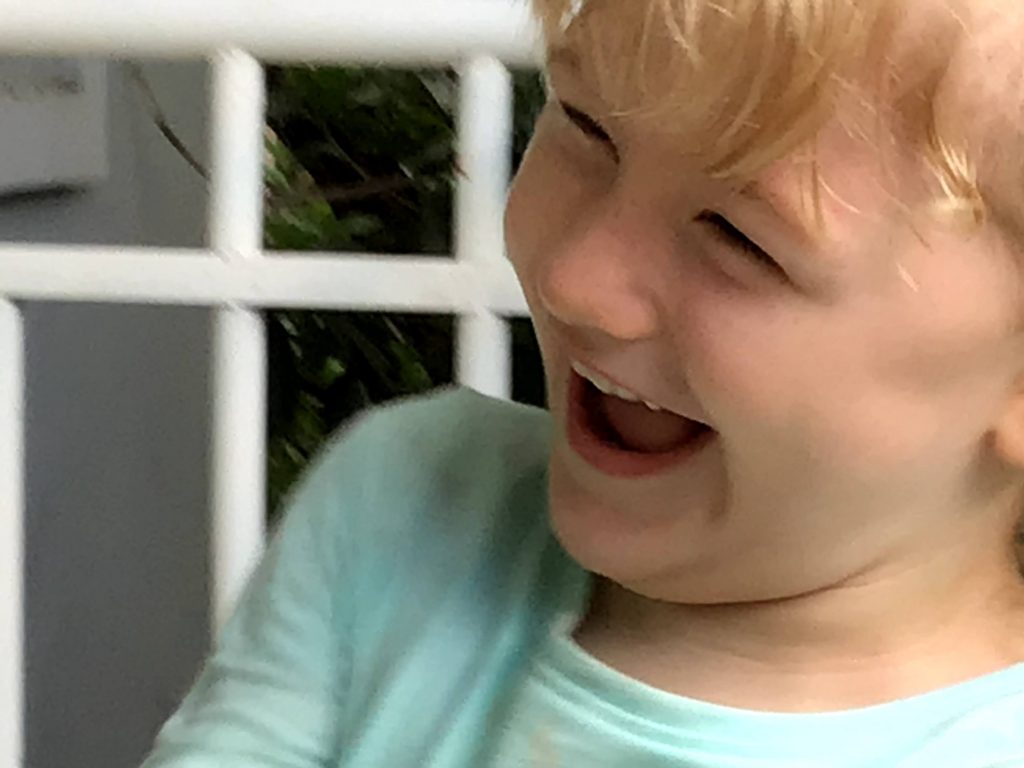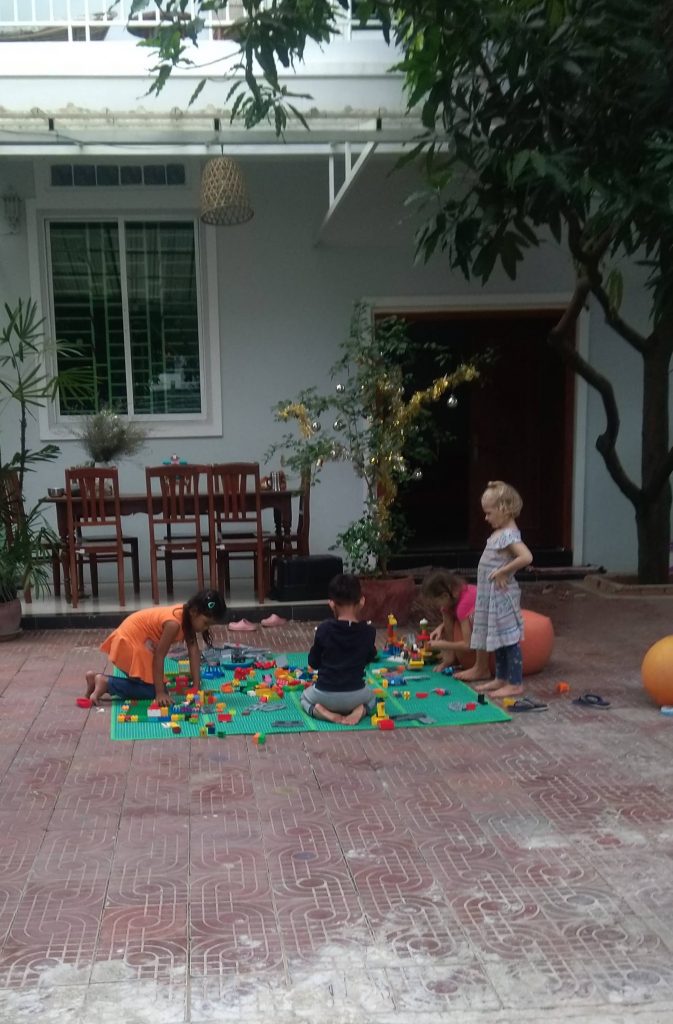Being a cross-cultural mom here in Cambodia has been a learning experience. Things that had priority for parenting in the US have shifted and changed, influenced both by the expat community and the Cambodian culture.
The most challenging part of parenting in the US was trying to figure out how to do it right. I read an article about the cultural transition from being a parent (something you are) to parenting (something you do). This started to happen in the 60s and 70s and has become a billion dollar industry with books, workshops, theories, endless improving products and the constant barrage of advice and criticism about the best way to raise small humans. The full weight of pressure to parent right is even more active in the expat mom community as all of us try to figure out how to manage the new risks Cambodia poses for our children.

One example of this is transportation. We were advised to bring high-quality moto helmets for the girls and we got great helmets which will grow with the girls. However, we cannot all travel on a moto together (2 person law), so if we’re going somewhere altogether we have to use a taxi – either a tuktuk, a remorque, or a car. None of these have car seats and only the car has seatbelts (sometimes). Many expat moms have chosen to employ a driver or learn to drive their own car, with carseats in it, to minimize safety risks. And every time I hear of a vehicle accident, I feel guilty and worried that we are compromising safety in order to live more local. I also recognize that traffic here moves at a much, much slower pace and the risk of injury is lower due to slow movement of all vehicles. On any given day I wonder what is the best choice?

Another example is air pollution. Phnom Penh has a lot more air pollution than where we lived in the US with a yearly average of moderate air pollution. The air pollution app recommends only allowing babies outside during days of good air pollution and staying inside the rest of the time. Our school occasionally sends out reports that they are monitoring the air pollution and will inform us if it gets to the point where outdoor recess is no longer recommended. But last year when we decided that we needed a smaller living space, we chose a house that is largely open air. We have two rooms with air conditioning (one is the guest bedroom, so please feel free to visit!). Our bedroom and almost all the general living space is open air. We sleep on the third floor with windows and lovely breezes. Those breezes make it nearly impossible to protect from air pollution in all the recommended ways. Many expat families spend twice as much on rent to live in apartment buildings where they can use air purifiers and air conditioning constantly in order to keep their kids as healthy as possible. The trade off of our house is that we have outdoor space with trees to climb and fruit to harvest. Again, I find myself worrying about something I would never have considered in the US.

In the Cambodian parenting community, I also encounter differences. One of my new worries is volume. When not shaking the neighborhoods with wedding music, Cambodians are very quiet. I listen to our landlords maintain complete calm and composure as their grandkids fuss, whine and occasionally tantrum. They use a traditional style of parenting where elders never show negative emotions and never lose their temper. In fact, to be “angry” in Khmer language is to be “completely insane with rage”. There isn’t a word for annoyed with your kids. You are the adult and you are expected to be calm all the time. At the same time, children are hit frequently and told terrifying stories to inspire good behavior, such as “if you cry loudly, the ghosts will come and take you away”. While I definitely try to remain calm at all times as a parent, my kids are loud. I took all those parenting girls Ted Talks and magazine articles seriously and I have encouraged them to be adventurous and to take up space. In the US, I would say they are average kids. Here, they are always the loudest humans on the street and their shrieks of joy, sobs of frustration or bubbling laughter can usually be heard from the office 3 doors down. And so I find myself worrying that they will alienate Cambodians as they get older and are less “cute” and excusable in their loud behavior.

Another difference in Cambodian parenting is screen time. Perhaps this isn’t so different from the US, but it is very culturally acceptable to allow children to watch very frightening movies and shows. Additionally, those without childcare simply give children their phones while they mind the street cart of food stall. I’m a long way from where I was as a first time mama who didn’t do any screen time at all for the first 3 years, but I still struggle with relationships and fairness around playing with other children. Our neighbors are another example – I love having their kids over and my girls play well with them. We do Legos and soccer and badminton. But I feel uncomfortable reciprocating the trust because the TV is on a lot and they do not monitor or adapt what is on for children at all. Right now Covid gives me a good cover, but we want reciprocal relationships and I’m still trying to figure out how to navigate this!
Those are just a few of the learnings and dilemmas I find myself find myself in while parenting here. We’ll keep learning and exploring and trying our best as we consider how best to raise these little humans.
You’re doing a wonderful job!
Thanks for sharing-parenting is complex in the best of circumstances and even more so in a different culture. We should find a time to connect and talk parenting 🤣💗!